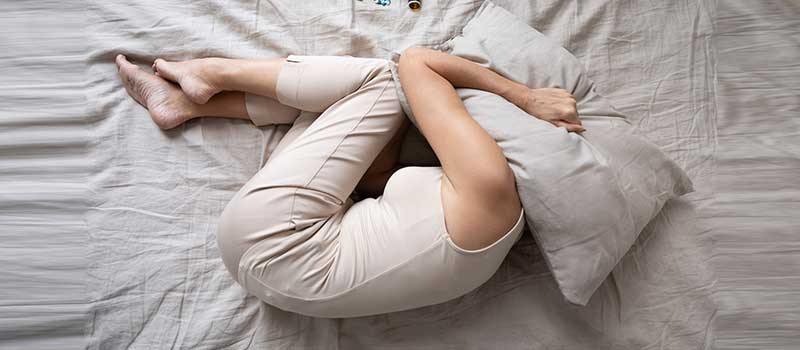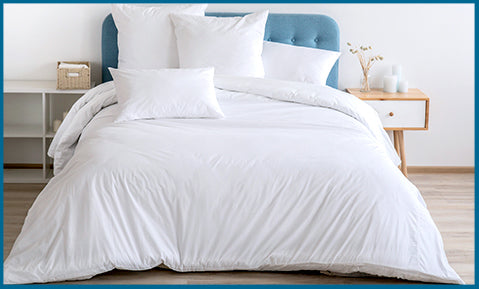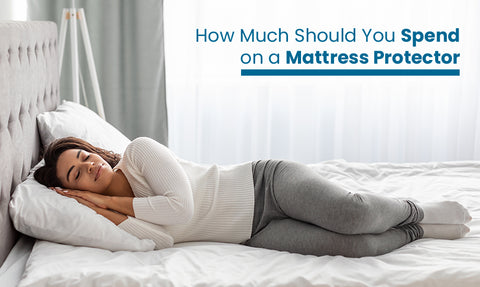
Skin and nasal allergies can often keep you up at night. Many researches have concluded that allergies can directly lead to insomnia. And the most common reason for allergies are household allergens: dust, dust mites, mods, and mildew. Fortunately, there is a way to get rid of these allergens and enhance your sleep.
In this post, you’ll learn about ways to improve your sleep when dealing with allergy-related insomnia.
Allergy Causes and Symptoms
Allergic rhinitis is the most common cause of allergy-related insomnia. In fact, it can cause regular nighttime wakings.
Allergies are usually caused by household allergens. In a study, the following causes of allergies were identified.

Romano, Mercedes et al. “The impact of perennial allergic rhinitis with/without allergic asthma on sleep, work and activity level.” Licensed under CC.

Romano, Mercedes et al. “The impact of perennial allergic rhinitis with/without allergic asthma on sleep, work and activity level.” Licensed under CC.
Tips to Enhance Sleep despite Allergies
#1 Flush your Sinuses
A runny nose can often make it difficult for you to fall asleep. So it’s a good idea to flush your sinuses before bedtime. When your nasal passage is clear, you can breathe more comfortably and fall asleep faster.
A saline spray can provide some relief if you regularly have a runny or stuffy nose before you go to sleep. Saline sprays are usually drug-free, so they generally don’t cause any allergies.
#2 Stay Hydrated
Staying hydrated is the easiest way to find relief from allergies. Dehydration can exacerbate the symptoms of a runny nose, so drinking a sufficient amount of water can prevent you from experiencing severe symptoms of allergy.
However, it’s better to avoid drinking too much water just before going to bed because too much hydration may force you to go to the bathroom a few times during the night, disturbing your sleep.
#3 Reduce Pollen in Room
During certain times of the season, the count of pollen in the air increases sharply. The airborne pollen particles get into your eyes and nasal cavity, causing an automatic allergic reaction from your body.
When the pollen count is low in the air, you should let your windows open to get more fresh air into the room.
When the pollen count is between moderate to high, you should keep your windows closed to prevent pollen particles from entering into your room.
#4 Get the Right Heat Appliances
Heat appliances, especially the ones that use wood burning to generate heat, can be the trigger for your allergies. These irritants can get clogged into your nasal cavity and exacerbate your symptoms.
Airborne particles and smoke usually exacerbate symptoms of both allergies and asthma. So it’s better to avoid both in any case.
Smoking cigarettes can also be a major problem, so even if you’re addicted to them, you should avoid them close to bedtime.
Note: Airborne particles such as pollen can also cause an allergic reaction. You can get an air purifier to get rid of the airborne allergens present in your bedroom.
#5 Optimize the level of humidity
Too much humidity can promote the growth of mold, mildew, and bacteria, all of which are known allergens. To avoid your bedroom from becoming a home to these pathogens, you should set the right humidity for your bedroom.
A dehumidifier can help you during the times when the weather is too humid.
However, in colder seasons, you can get a humidifier to reduce the dryness in the air caused by the use of heating appliances.
#6 Get a Hypoallergenic Pillow
It’s vital that you get a hypoallergenic pillow.
A hypoallergenic pillow is made of a material that rarely causes allergies. While several bamboo pillow fills are hypoallergenic, memory foam clearly stands out because of its density.
Memory foam pillows are Dust and Dust Mite resistant: the highly dense foam pillows are naturally resistant to both dust and dust mites.
Know more about Sleepsia’s Hypoallergenic Bamboo Pillow.
Conclusion
Allergies can hamper your sleep and lead to insomnia. Sleep deprivation has serious health consequences, so it’s better to use the tips provided in this post to reduce the allergens in your household so that you can enjoy uninterrupted sleep night after night.












